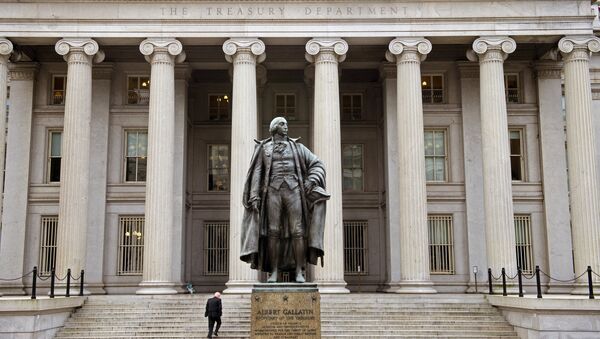The United States has imposed sanctions against nine people and one entity with ties to Iran, the US Treasury Department announced.
The list includes one of the sons of Iran's Supreme Leader Ali Khamenei, Mojtaba Khamenei, the head of Iran's judiciary Ebrahim Raisi and Khamenei's chief of staff Mohammad Mohammadi Golpayegani, as well as the Iranian General Staff of the Armed Forces.
"Today the Treasury Department is targeting the unelected officials who surround Iran’s Supreme Leader, Ayatollah Khamenei, and implement his destabilizing policies," said US Treasury Secretary Steven Mnuchin. "These individuals are linked to a wide range of malign behaviors by the regime, including bombings of the U.S. Marine Barracks in Beirut in 1983 and the Argentine Israelite Mutual Association in 1994, as well as torture, extrajudicial killings, and repression of civilians."
This reveal was delivered via the department's website on on the 40th anniversary of the seizure of US Embassy in Tehran which marked the beginning of the 444-day Iran hostage crisis.
Sanctions Pressure
In 2018, the United States unilaterally withdrew from the Joint Comprehensive Plan of Actions (JCPOA) also known as the Iranian nuclear deal, and began reintroducing tough banking and energy-related sanctions against Tehran. The US also threatened to slap secondary sanctions against any country buying oil from Iran.
A year later, Tehran announced its decision to partially suspend some obligations under the JCPOA deal, whose goal was to have Iran curb its nuclear program in exchange for sanctions relief, and gave the other signatories 60 days to save the accord by facilitating oil exports and trade with Iran.
When that deadline expired, Iranian Deputy Foreign Minister Seyed Abbas Araghchi announced that his country was ready to begin enriching uranium beyond the 3.67 percent level set in the JCPOA, adding that Tehran would continue to gradually abandon its nuclear commitments every 60 days.


